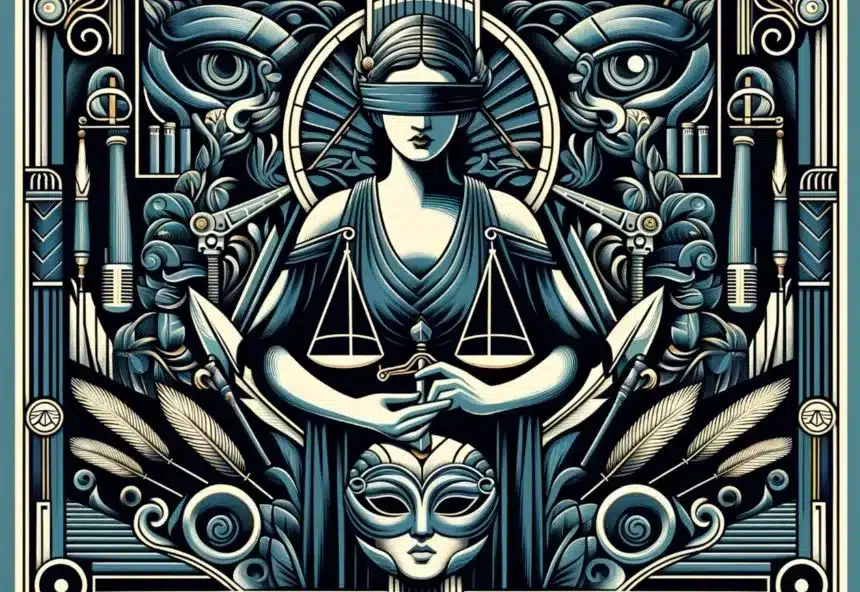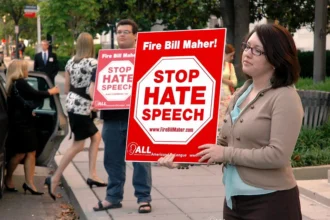In a world increasingly mired in disinformation, safeguarding the principles of freedom of expression becomes a critical endeavor. This article delves into the European Court of Human Rights’ (ECtHR) role in striking a balance between curbing disinformation and protecting the fundamental right to free speech.
By evaluating the ECtHR’s strategic approach, I explore how the court navigates the fine line between addressing the spread of misleading information and ensuring that actions do not impede upon the democratic cornerstone of unfettered expression. The exploration reveals the court’s commitment to maintaining a robust public discourse, essential for the flourishing of democratic societies.
ECtHR’s approach emphasizes the critical balance between combating disinformation and protecting freedom of expression.
Through the lens of the ECtHR’s jurisprudence, the article illuminates the nuanced challenges and implications of fighting disinformation within the framework of human rights, emphasizing the importance of a measured, rights-respecting approach in preserving the vitality of democratic discourse in the digital age.
Disinformation Defined
Understanding disinformation requires recognizing its intention to deceive, making it fundamentally different from misinformation, which lacks this deceitful intent. The ECtHR navigates these waters by not singling out disinformation per se but by evaluating the truthfulness of information and the motives for its spread when considering the implications for freedom of expression.
Any measures taken must be necessary, proportionate, and serve a legitimate public interest.
This approach underscores the challenge of mitigating disinformation’s impact without encroaching on the essential right to free speech. It points to a critical balance: ensuring public discourse remains robust and untainted by intentionally false information, while also safeguarding the freedoms that underpin democratic societies. The distinction between disinformation and misinformation is crucial, as it affects the legal and societal strategies for addressing these phenomena.
The ECtHR’s role in this context is to delineate when and how the state can intervene in cases of disinformation without disproportionately limiting freedom of expression, reflecting a sophisticated understanding of the varied nuances that characterize the spread of false information in the digital era. This judicious approach is vital in preserving the integrity of public discourse, ensuring that efforts to combat disinformation do not inadvertently suppress legitimate expression or dissent, which are essential for a vibrant democracy.
The ECtHR’s Balancing Act
The ECtHR scrutinizes freedom of expression restrictions through a finely tuned lens, especially when addressing disinformation. It mandates that such restrictions must be necessary and proportionate, serving a clear, legitimate purpose within democratic contexts. This framework ensures that efforts to combat disinformation do not unjustifiably impinge on the fundamental human right to express oneself freely.
Furthermore, the ECtHR’s meticulous approach emphasizes the critical balance between combating disinformation and protecting freedom of expression. By requiring a thorough justification for any restriction, the Court aims to safeguard public discourse from undue limitations, ensuring that measures against disinformation are applied judiciously and with restraint.
Lastly, the ECtHR’s jurisprudence on this matter highlights the Court’s commitment to maintaining a healthy public sphere where freedom of expression thrives. Recognizing the potential harm caused by disinformation, the Court navigates these complex issues with a commitment to uphold the principles enshrined in the European Convention on Human Rights, demonstrating the intricate dance between protecting democratic values and addressing the challenges posed by disinformation in the digital age.
Challenges and Implications
Tackling disinformation requires a nuanced approach that respects the right to freedom of expression while ensuring the public has access to reliable information. This balance is particularly challenging to achieve, as laws and policies aimed at curtailing disinformation must avoid overreach, which could suppress legitimate public discourse and infringe upon fundamental rights.
The ECtHR emphasizes that any measures taken must be necessary, proportionate, and serve a legitimate public interest, thus ensuring they do not become instruments of censorship. Precision in legislation and policy-making is crucial to avoid the potential chilling effect on free speech, where individuals may self-censor out of fear of reprisal. Moreover, the context in which disinformation spreads—often amplified by digital platforms—complicates the enforcement of such measures, demanding innovative solutions that address the root causes without compromising the principles of a democratic society.
This intricate balance is essential not only for the protection of individual rights but also for the preservation of a healthy public sphere where diverse ideas and information can circulate freely, contributing to informed public debate and decision-making. The implications of getting this balance wrong are significant, potentially undermining trust in democratic institutions and eroding the very fabric of democracy itself.
Upholding Freedom in the Fight Against Disinformation
In the battle against disinformation, achieving a balance between restricting false information and preserving the sanctity of freedom of expression is paramount. The ECtHR meticulously underscores the need for measures against disinformation to be proportionate, necessary, and aimed at legitimate public interests, ensuring the protection of democratic principles.
As policymakers forge strategies to combat disinformation, they must navigate this delicate balance with care, ensuring that efforts to cleanse the public sphere of disinformation do not inadvertently stifle free speech or undermine democratic engagement.
This approach is critical in maintaining a vibrant public discourse, essential for the health of democracy, fostering an informed citizenry capable of critical thinking and participation in democratic processes. The pursuit of these ideals, amidst the challenges posed by disinformation, underscores the ongoing commitment to uphold the fundamental human right to freedom of expression, ensuring it continues to thrive in our digital age.
Adapted from an academic article for a wider audience, under license CC BY 4.0.









